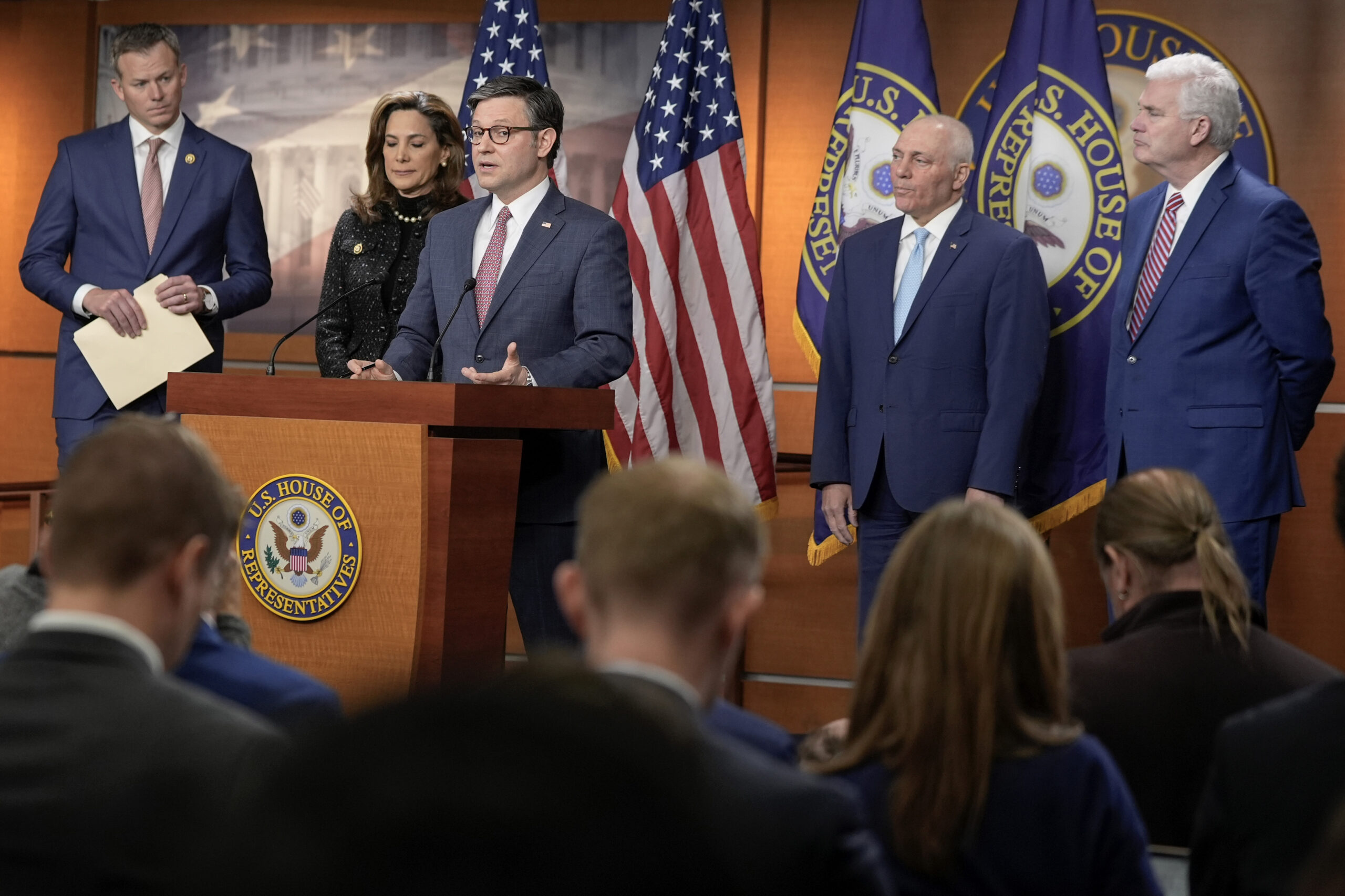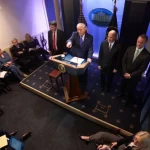

The House Rules Committee advanced a modified version of a key federal surveillance extension, increasing pressure on Republicans to forgo their recent infighting and pass the legislation ahead of its scheduled expiration next week.
The committee advanced a new proposal to reauthorize Section 702 of the Foreign Intelligence Surveillance Act during a late-night meeting on Thursday, adding several provisions to persuade a substantial number of hard-line conservatives to back the legislation. The bill is now scheduled to reach the floor for debate early Friday morning, with a final vote expected later in the day.
The altered bill comes after 19 Republicans joined all Democrats in voting against a procedural rule that would have moved the FISA reform bill forward, effectively putting the House at a standstill until a new proposal was negotiated. Lawmakers met in several closed-door meetings throughout Thursday to consider a backup plan that would include a two-year sunset and a stand-alone vote on an amendment from Rep. Warren Davidson (R-OH).
It remains unclear whether the early sunset and amendment vote provisions are enough to appease the holdouts. Some GOP members are adamant about including warrant requirements in FISA, and the absence of such requirements may cause them to tank the procedural rule yet again.
A rule vote is a procedural move that allows lawmakers to move forward with debate and any amendments, which is typically voted on along party lines and rarely fails on the House floor. However, House conservatives have weaponized the procedure several times over the last year, voting to stall action on the floor whenever they disagree with GOP leadership.
Rep. Chip Roy (R-TX) told reporters that part of the reason for the vote down on Wednesday was because “pressure was applied” against the warrant requirements, so the 19 members who voted against the rule “pumped the brakes.” Colleagues were still “digesting” the new provisions and drafting amendments, he said, before the bill comes to the House floor.
“You know, people, their heads explode, they go, ‘How could you possibly vote for the rule out of committee, manage the rule, and they vote against the rule on the floor?’ Well, circumstances change,” Roy said.
However, Roy said that getting a two-year sunset on FISA and a stand-alone vote on Davidson’s Fourth Amendment is Not For Sale Act “gave, I think, a greater deal of comfort” to the lawmakers who voted down the rule.
Some initial holdouts say the changes are enough to flip their votes, including Reps. Anna Paulina Luna (R-FL), Matt Gaetz (R-FL), and Andy Biggs (R-AZ). Other members, such as Rep. Tim Burchett (R-TN), say they remain undecided but could be swayed to advance the rule and begin debate.
“If they do all the things they say they’re going to do, I could probably hold my nose and vote for the rule,” Burchett said. “As far as the final bill goes, I just have to see exactly what we get.”
Rep. Cory Mills (R-FL) said he is still a “no” on the FISA bill but is undecided on the rule. Like some of his colleagues, he said there have been some “incremental changes” that are getting him closer to a “yes” vote on the rule.
“There has been some movement; we just want to guarantee that it is in the bill text and it’s going to be what’s finally presented,” Mills said. “Not just, ‘Oh, we’re considering,’ or ‘Oh, yes, we’re looking at this, or ‘Oh, we agree in principle.’”
The two-year sunset, in particular, could attract Republicans who are hoping that the next FISA reauthorization would come under former President Donald Trump if he wins the 2024 election.
“The two-year time frame is a much better landing spot because it gives us two years to see: Is any of this working? Rather than kicking it out five years. They say these reforms are going to work? Well, I guess we’ll find out,” said Roy, who noted that he is supportive of shorter reauthorizations in general.
Rep. Bob Good (R-VA), one of the 19 Republicans who voted down the rule on Wednesday, said he is in favor of changing the time frame on reauthorization because it would hopefully be in the hands of the GOP.
“We’re hopeful that we will have a Republican Senate, Republican House, and a Republican in the White House,” Good said when asked why he preferred a two-year sunset to the current five-year time frame.
But the changes made to appease some of the most hard-line Republicans could cause other GOP lawmakers to reconsider. Rep. Brian Fitzpatrick (R-PA), a former FBI special agent, argued changing the reauthorization sunset date to two years would be “a mistake.”
CLICK HERE TO READ MORE FROM THE WASHINGTON EXAMINER
“This is a critical national security tool. We can’t be playing games with it,” Fitzpatrick said. “I’m the only FBI agent in Congress who’s actually used it, and it saves a lot of lives every day that people don’t know about.”
Rep. Dan Bishop (R-NC) would not say whether he had changed his mind on opposing the rule, telling the Washington Examiner he’s not necessarily undecided but “I just don’t think it’d be helpful to the process for me to comment.”






